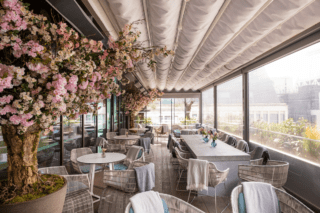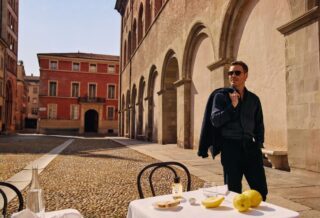This website uses cookies so that we can provide you with the best user experience possible. Cookie information is stored in your browser and performs functions such as recognising you when you return to our website and helping our team to understand which sections of the website you find most interesting and useful.
Luxury travel and conservation come together in Mozambique’s pristine Bazaruto Archipelago
By Lauren Burris Hill | 29 March 2019 | Travel
Discover how andBeyond is using luxury to protect Mozambique’s oceans of plenty
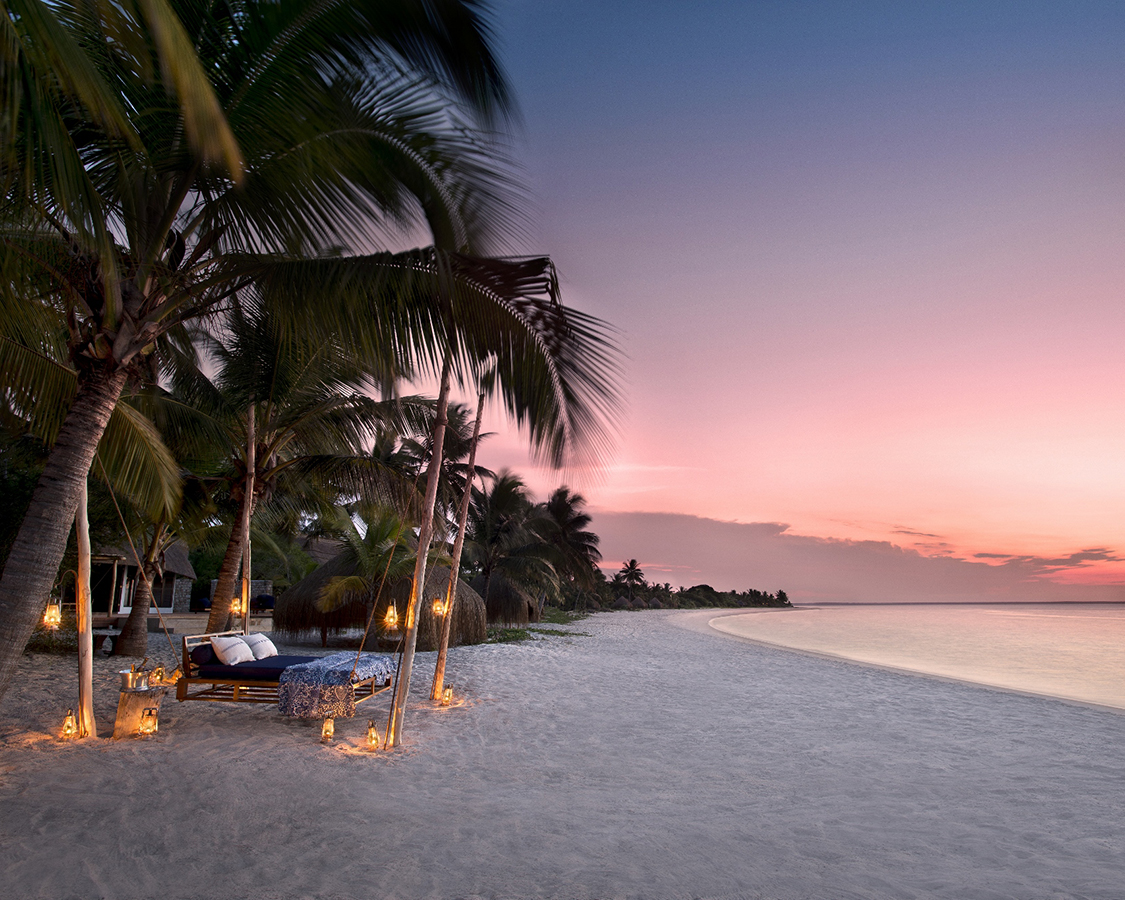
It’s as we’re cruising the shallows off Bazaruto Island that I first see it – a solitary dugong slowly grazing on the seagrass of this pristine lagoon, indifferent to our presence as we lean over the bow of the small boat. Every few minutes, the manatee-like sea creature flips its tail to surface for air, giving us a glimpse of the round snout that makes it so distinct. These shy marine creatures inhabit the shallow waters of just a few coastal regions in the western Pacific and Indian Oceans. This archipelago off southern Mozambique is home to the last dugong population in this part of the world, and it's here I'm visiting with andBeyond.
The Bazaruto Archipelago’s six islands and waters rich in marine life have been protected since 1971 when the whole area was designated a national park. The importance of this status is easily understood when you’re beneath the surface of the cerulean sea that laps these islands’ shores. Before navigating the boat to this lagoon in the hope of seeing a dugong, we’d been snorkelling Two Mile Reef – a remarkably pristine stretch of coral passing between the archipelago’s two biggest islands, Benguerra and Bazaruto.
When so much of the coral you see now is bleached by the increase of water temperatures, it’s reassuring to see how colourful the reef is here. Pink, orange, blue, green and yellow coral formations of every shape and size teem with astonishing marine life and synchronised shoals of brazenly coloured tropical fish. Startlingly blue starfish rest on the seabed, and it’s only the swirling black tentacles of an octopus that give away its hiding place between two rocks. A large green turtle slowly glides by while a reef shark coasts past almost unnoticed.
Those who come to stay in the archipelago’s small island resorts are afforded exceptional access to this extraordinary environment, along with the opportunity to gain insight into what life is like for the islanders. Both land and sea are important to the archipelago’s conservation story, and a connection to the community is key to the whole endeavour’s success. >>
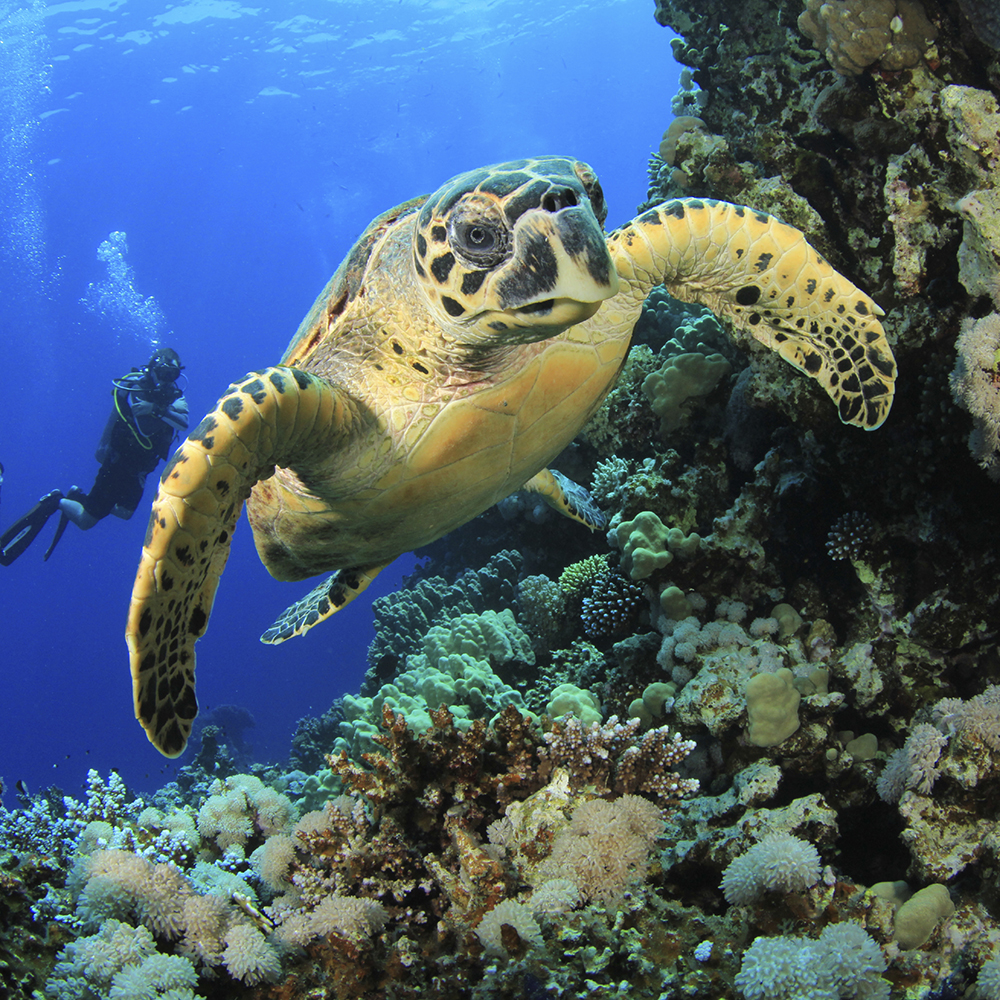
The barefoot luxury beach lodge andBeyond Benguerra Island leads the way in developing these conservation and community initiatives. On a sublime stretch of the island’s western coast, sprawling villas that peer out from tropical gardens, a beachfront infinity pool and open-air dhow bar – the traditional wooden boat colourfully ornamented and nestled on the sand – come paired with an unmistakeable passion for working with the community and conserving the environment.
While you’re here, you can take a horseback ride along empty white sand beaches, set out on decadent castaway picnics and see the sunset while cruising on one of those dhows, the only sound the gently lapping waves and wind blowing in the sails. Each evening, you’ll sip cocktails by a blazing beach fire and dine on grilled seafood under the stars.
If you’re feeling adventurous, you can take a scenic helicopter ride over the islands and set out on a bush drive along Benguerra’s sandy paths. By exploring the land, you’ll see abundant birdlife, timid suni antelope and a lake frequented by flamingos, the wild northern coast where ghost crabs scuttle across the sand, and red-hot towering sand dunes.
You can scuba dive and snorkel all year round, but come between July and October and you’ll also see migrating humpback whales. Whale sharks congregate along the San Sebastian Peninsula in June and July, and migratory birds make an appearance from October through to March.
In 2017, andBeyond announced the launch of its Oceans Without Borders initiative (leading on from its successful Rhinos Without Borders programme) to protect the marine environment of this archipelago and its two other island lodges, andBeyond Vamizi Island in Mozambique and andBeyond Mnemba Island in Zanzibar. In this way this pioneering company is playing a part in the conservation of 1,865 miles of African coastline. >>
Related: Back in vogue: this year's most surprising luxury travel destinations
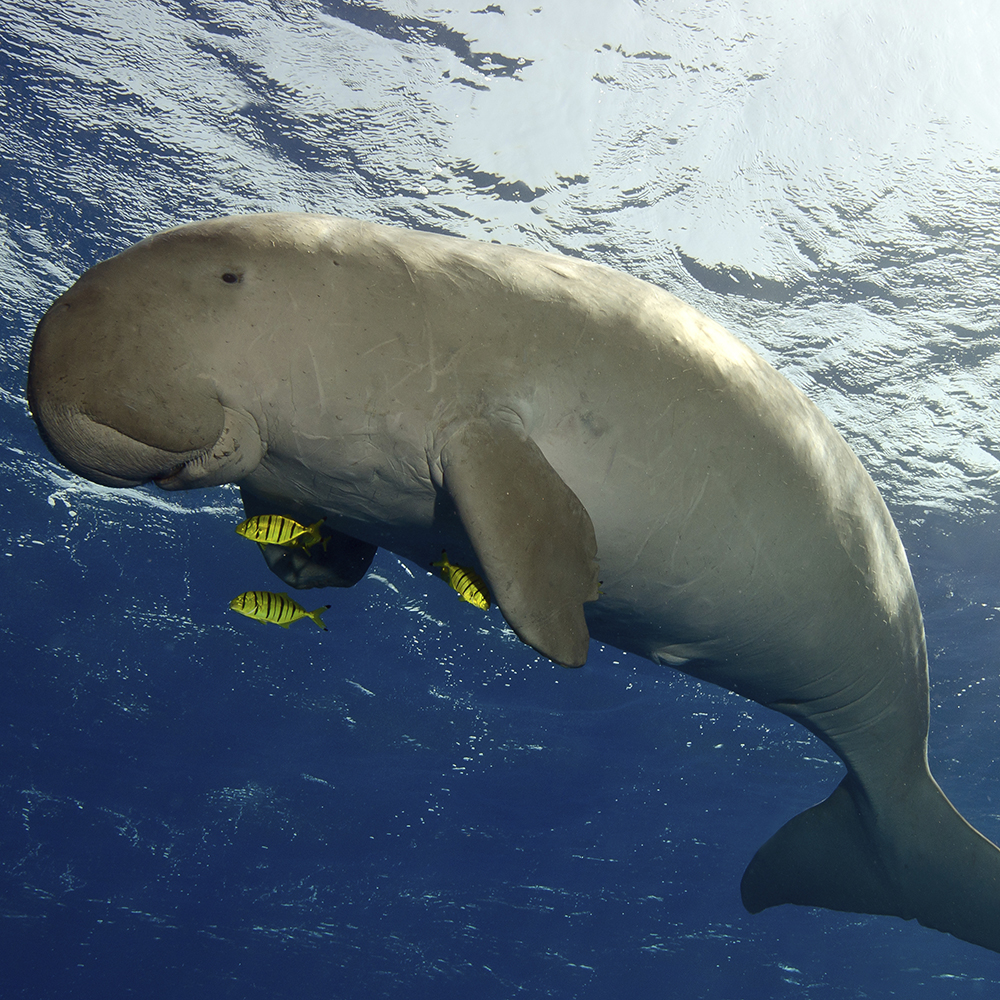
Up until now, andBeyond Benguerra Island has channeled much of its efforts into supporting the local community in partnership with Africa Foundation – building an island clinic, community centre and school, among other initiatives – while also educating local people in the importance of preserving their environment. Now Oceans Without Borders is stepping each lodge’s efforts up a gear: there’s an increased focus on the data collected from coral, fish, turtle and whale monitoring, and assessing community needs to support sustainable livelihoods.
After coming in from a sunset sail on the dhow I get talking to the lodge’s general manager, Johan van der Merwe, who’s behind much of the community and conservation work undertaken here. “The whole ethos with andBeyond is, ‘How do you make a difference; how do you make it sustainable?’ And the first thing to look after is the wildlife,” he explains. “On the islands it’s engrained in the community’s upbringing to fish with nature. We need to educate people not to use nets, or to fish only for certain species.”
Johan explains it’s this archipelago’s position at the point different currents collide that makes it so bountiful. “These currents bring all the marine life here,” he says. “All the way from the San Sebastian Peninsula to a few kilometres north of Bazaruto.” Aside from its resident dugongs and migratory whales, the San Sebastian Peninsula is said to have the highest concentration of whale sharks in Africa at certain times of year, and Mozambique is one of the few places you’ll find five of the seven turtle species.
“It’s phenomenal. We have some real close encounters,” Johan enthuses, before concluding: “Ecology-wise, the Bazaruto Archipelago is a very important area, and if we don’t protect what is here, it’s gone.”
Read more about luxury travel and conservation initiatives in Tempus Magazine





